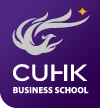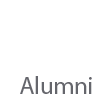The Founder of Hong Kong’s first Pulp Mill Transforms Waste to Wonders: Harold Yip (BBA in Marketing 1987; EMBA 2001)
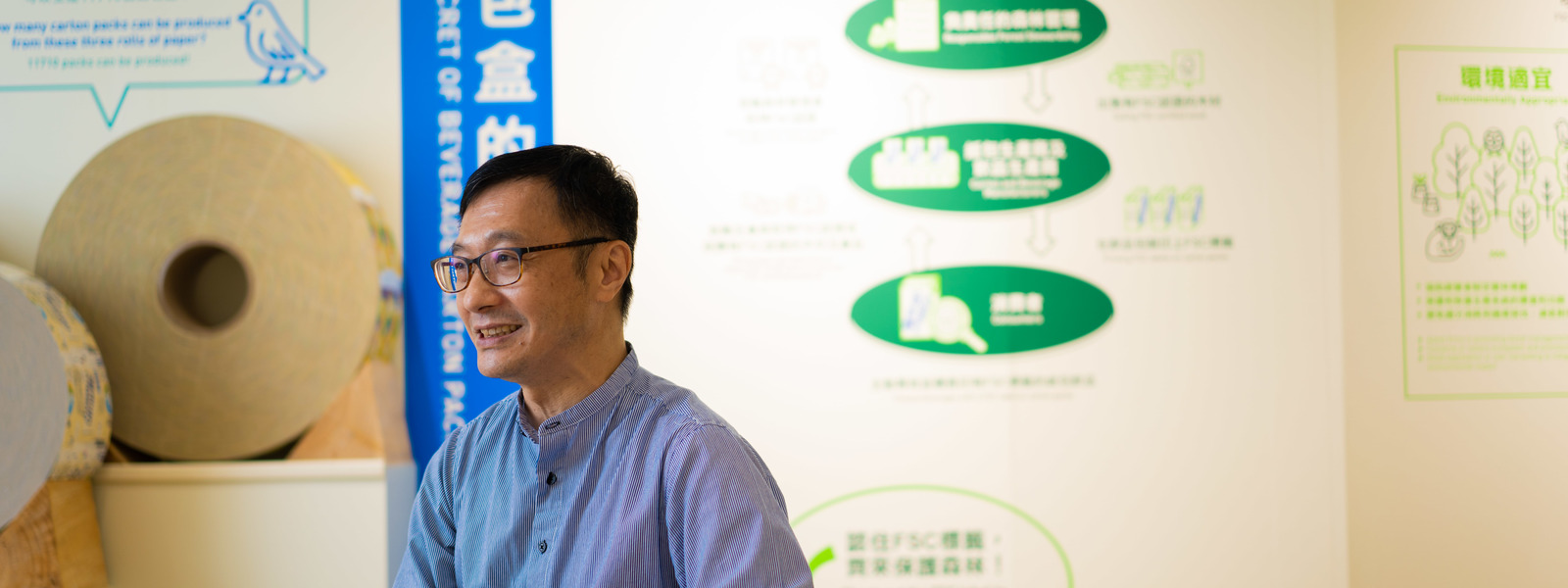
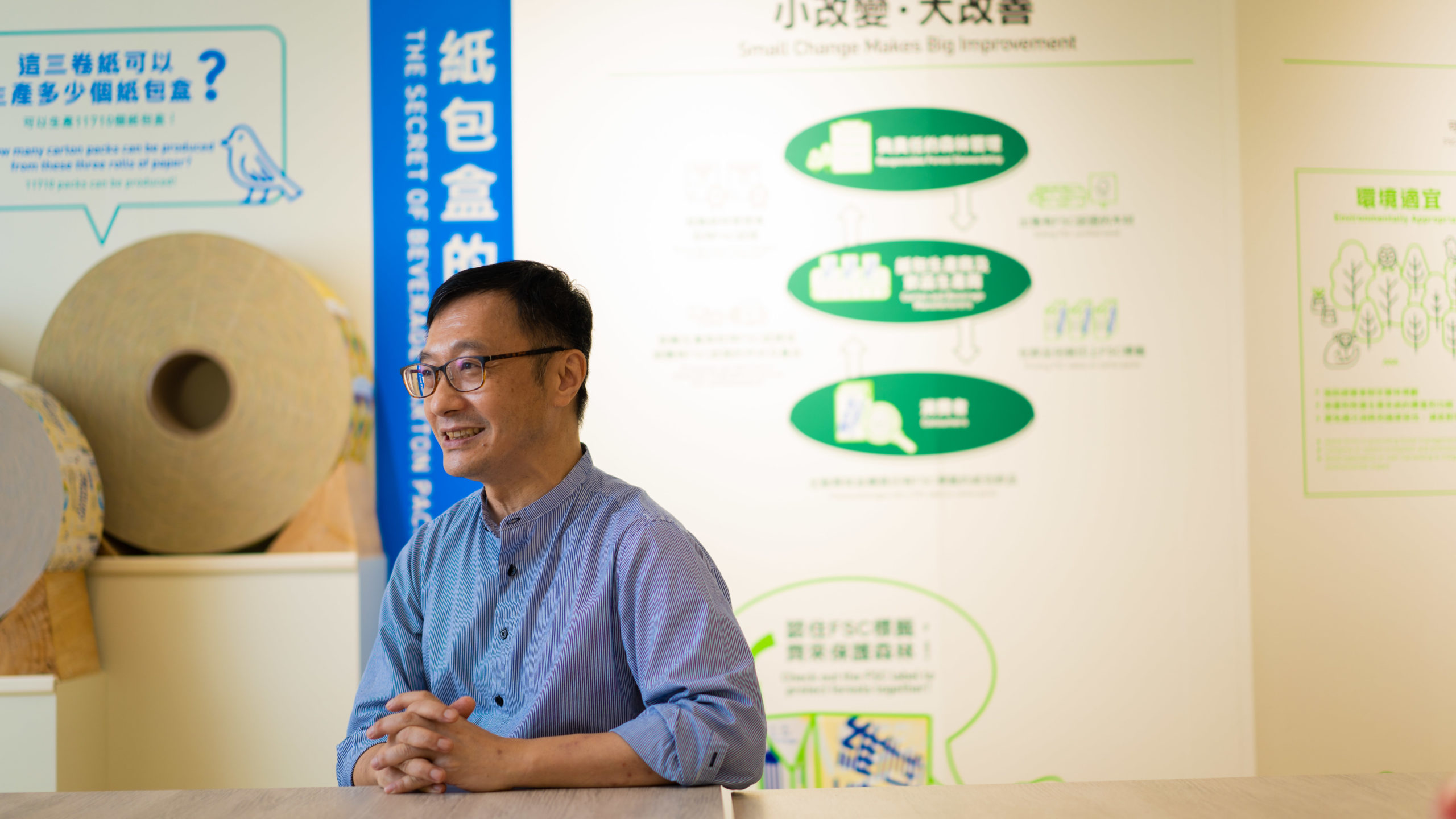
Forever hustling, forever looking out for the next opportunity
As Co-founder and Executive Director of Secure Information Disposal Services Ltd (SSID), Harold Yip (BBA in Marketing 1987, EMBA 2001) operates the most popular confidential destruction recycler in Hong Kong. Apart from confidential destruction, SSID also provides professional waste consultancy services including waste audit and waste reduction planning. Last year, Harold even went as far to set up the first pulp mill in Hong Kong called MilMill, exporting pulp from recycled paper, turning it into tissue, copy paper and wrapping paper amongst many recycled paper products. While others see him as an enviro-protection dreamer, he has proved himself by being a pioneer in this circular economy!
Junkman armed with IT Skills strikes Gold in Rubbish
For most people, old documents are nothing but waste, but Harold was able to identify a commercial opportunity. Before starting his own company, he had worked in sales and marketing roles for FMCG companies, even becoming the General Manager for Double A in Hong Kong and building up the number one position of its copy paper. Later, he joined Fook Woo Paper (later renamed as Integrated Waste Solutions Group) as CEO, but even before the company got listed Harold realised there were too many constraints, thus decided to collaborate with his business partner and set up their own company, taking the first step towards realising circular economy. “The recycling business has an ideal entry point because on one hand we’re charging clients for handling their confidential documents, and after destruction those documents can be exported as wastepaper as well.”
Harold and his partner set up their company SSID, utilising the latest technologies to create a new scene within the traditional recycling business. “Professionalism is the key to gaining your clients’ trust when it comes to managing confidential documents. It’s very different from the low entry point of traditional recycling businesses.” SSID uses a proprietary RFID system that they developed in-house, which allows clients to track the end-to-end process of their confidential documents from pick-up to destruction. This technology even made them the first waste management company in Hong Kong to be awarded the ISO27001 (Information Security Management) qualification.
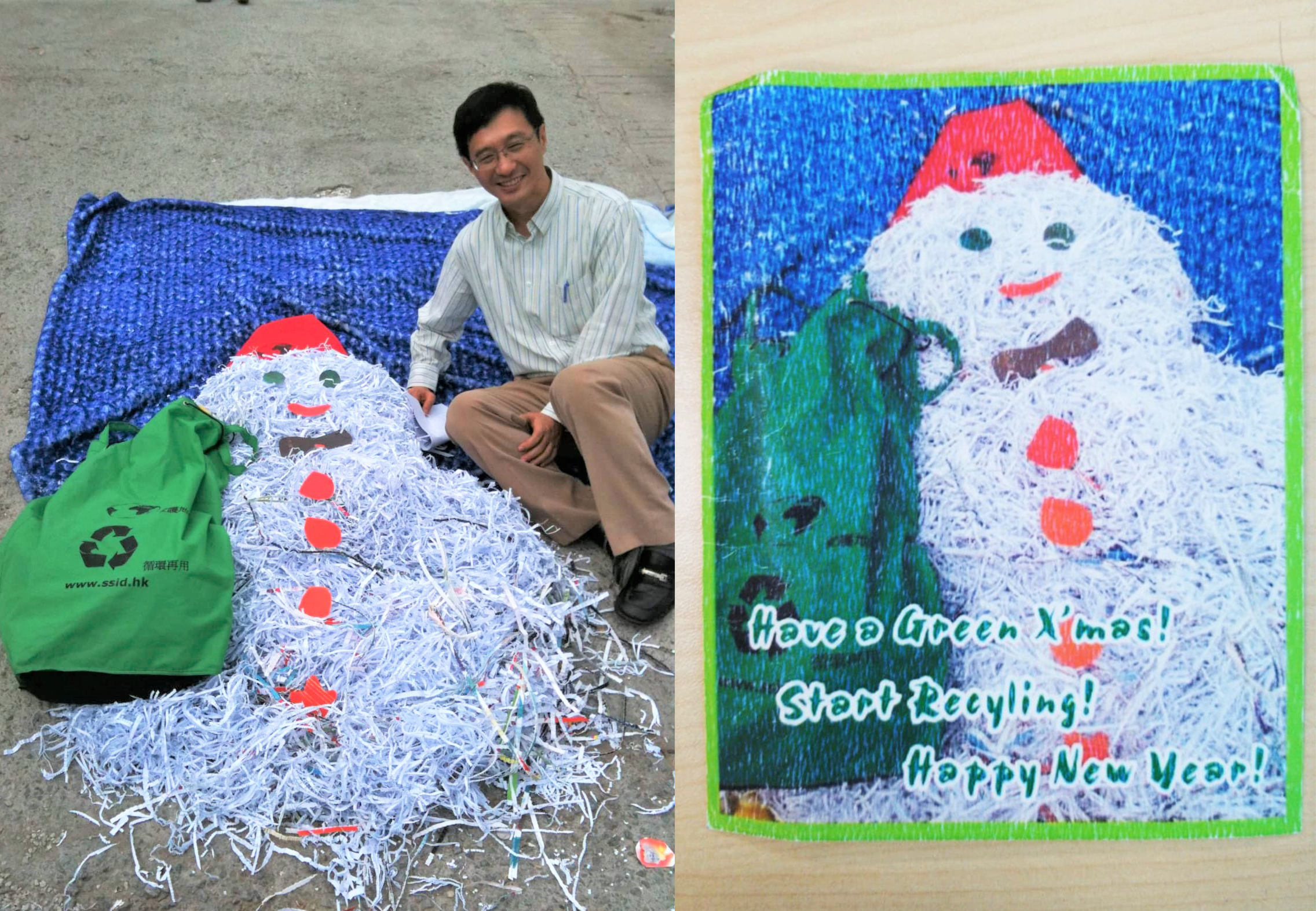
In SSID’s second year of operations, Harold and his partner used shredded paper to make a Christmas card, creating a buzz for waste collection and recycling
Resources go Full Cycle when Waste is turned into Raw Material
Last October, Harold established MilMill – Hong Kong’s first pulp mill, realising a business concept that he had brewed for nine years by handling confidential documents with a win-win procedure. “Pulping can completely remove all words and images from paper, while the pulp can also be used as raw material and recycled into different paper products. This is the safest and most sustainable way recognised worldwide in managing confidential documents.”
Pulping also allows them to process wastage that used to be difficult to disintegrate, such as beverage cartons. “Because beverage carton is a composite material, there are international laws that restrict it from being exported as wastage, but pulping allows it to become a raw material, putting less pressure on landfills.”
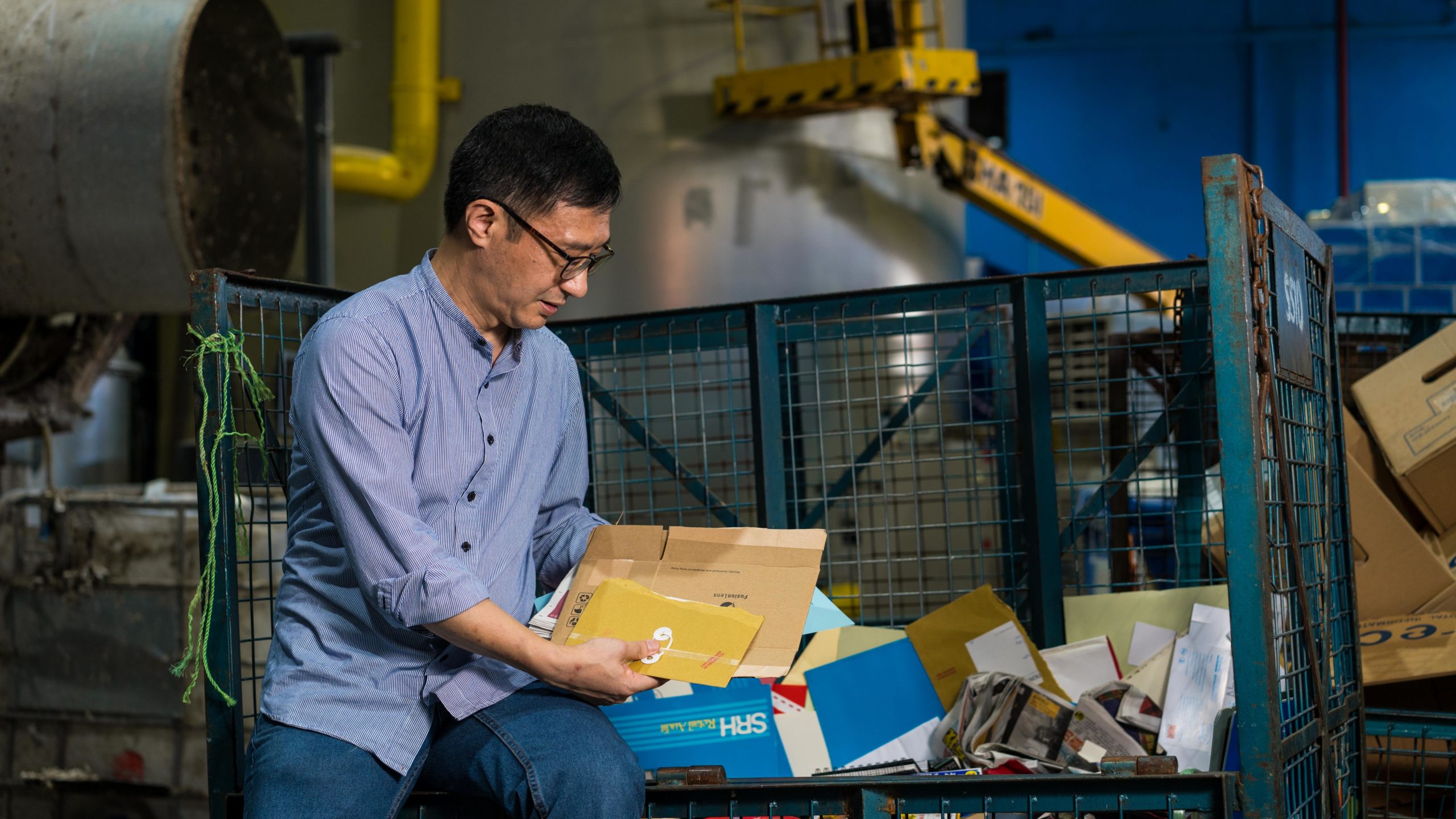
Wastepaper that cannot be processed is redirected to MilMill because it’s the only pulp mill that can handle composite material
Apart from commercial benefits, there is a bigger dream behind establishing MilMill. “We hope that by exporting pulp and creating paper products for the Hong Kong market, it feeds into a circular economy and creates a holistic solution for the waste producers.” After a great deal of hard work and effort, Harold finally reached an agreement with a paper factory in Vietnam, where MilMill would supply pulp for them to manufacture into recycled tissue, and MilMill would then purchase it to sell in Hong Kong. So far market response to recycled tissue has been quite positive.
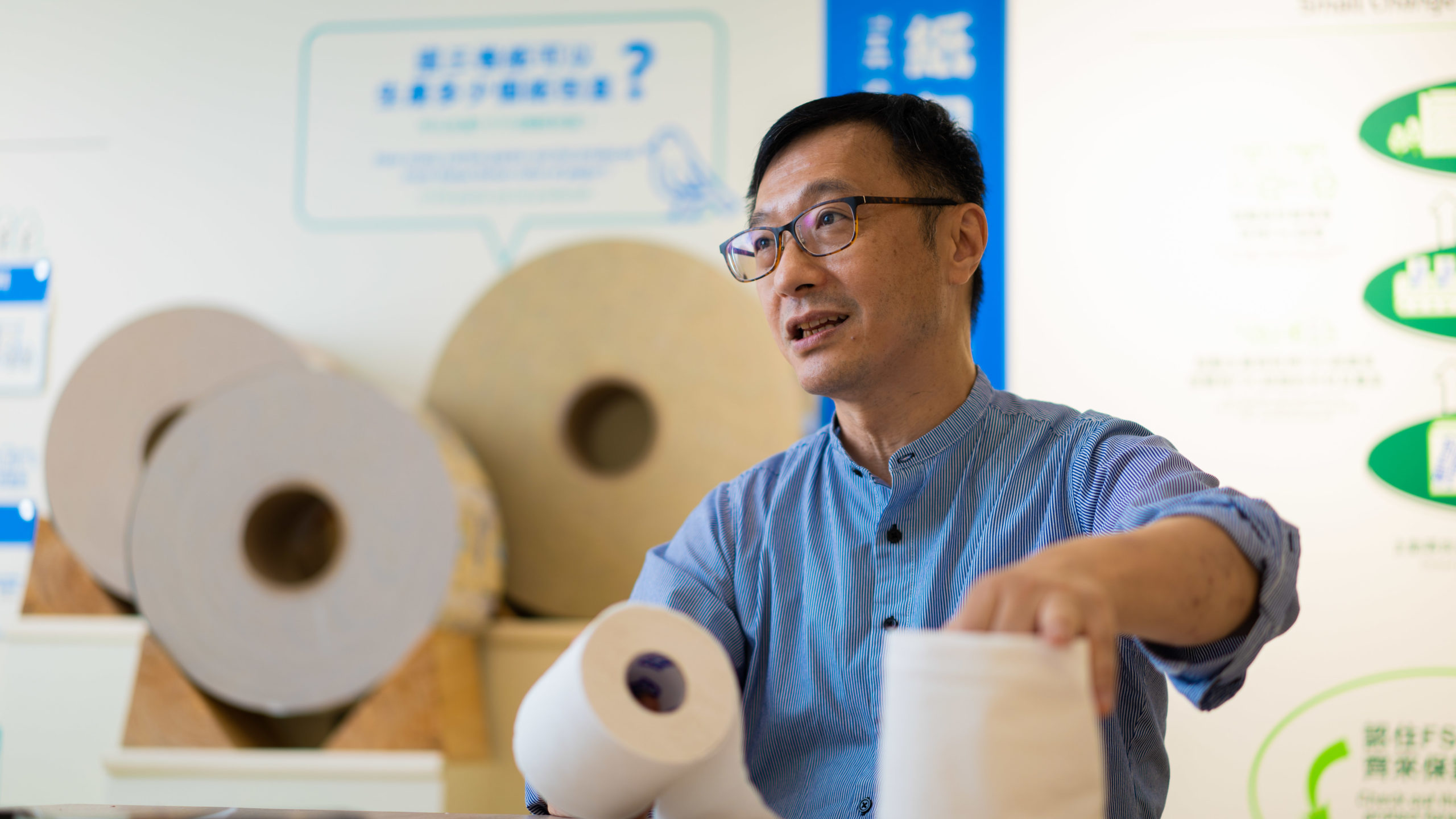
Pulping can turn wastepaper into recycled tissue, even though the texture is coarser but more durable, water soluble and chemical-free, providing a more environmentally friendly option for consumers
Applying the Same Concept across Industries to Market for Trash
Harold has strong ties with CUHK Business School. He acquired his BBA in Marketing (1987) and EMBA (2001) from The Chinese University of Hong Kong, and after establishing SSID also began to provide a one-stop waste service for his alma mater.
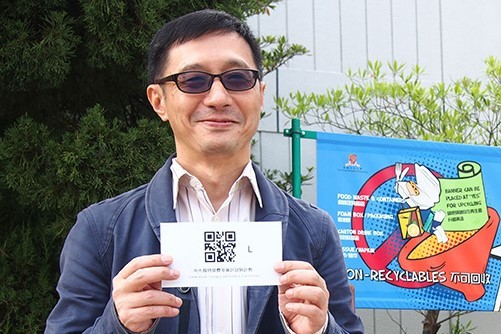
Harold uses a new tracking system to understand the CUHK’s recycling rate and formulate more effective waste reduction policies
Looking back to his university days, Harold gives huge credit to the CUHK for releasing him from the burden of examinations. “The University’s liberal environment helped me understand that there was so much more to do beyond studying, I had a chance to develop my interests, learned how to learn, and participating in various student organisations nurtured my civic-mindedness to care about the community. All this has made me become who I am today.”
Harold continued to invest time in self-learning, realising that if you had a good grasp on the know-how of a business, the same sales strategy could be applied across multiple industries. “Waste is also a type of commercial product; it requires marketing to change consumer habits. For example, when it comes to beverage cartons, we need people to cut open and wash the boxes before recycling them. Guiding people to develop new habits is much more complicated than simply attracting a consumer to choose a particular brand.”
Recalibrating and Turning Obstacles into Opportunities
Harold describes recycling as a “happy industry”, where he has both achieved a great sense of satisfaction and witnessed countless ups and downs. For example, when the COVID-19 pandemic first broke out, the volume of recovered recyclable beverage cartons MilMill collected fell by 90%; so Harold worked with district councils and other organisations to increase collection points. Thankfully with the support of residents, the volume of recyclables increased rapidly within the next two months. “We received mail from enthusiastic supporters every day. The beverage cartons had all been cleaned thoroughly, and some packages were even from overseas. It was such a huge encouragement for all of us!”
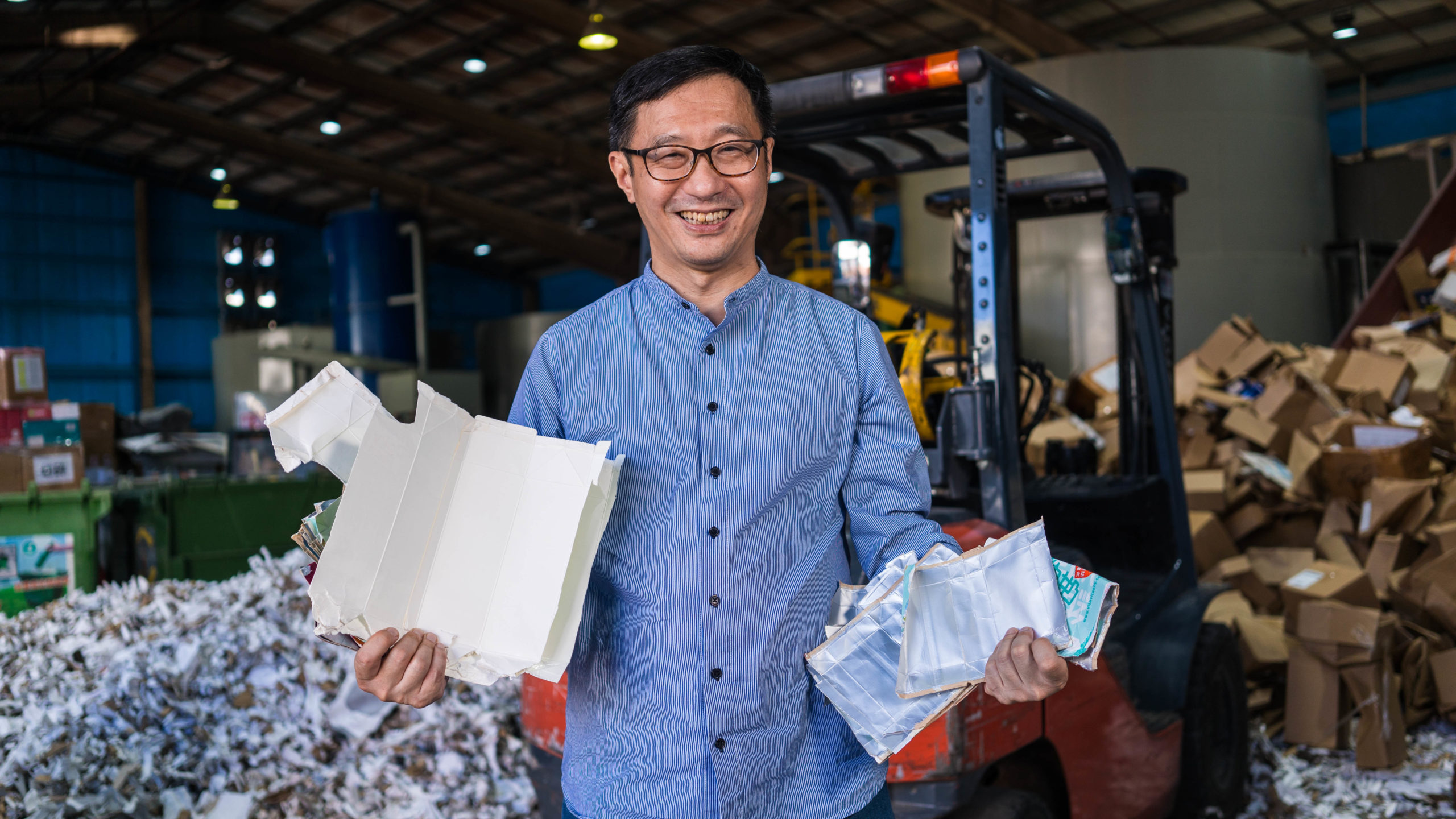
Volume of recovered beverage cartons was impacted during the onset of the COVID-19 pandemic, but Hong Kong residents continued to support by sending in cleaned cartons, giving Harold the motivation to continue his calling for environmental protection
While recalibrating his next steps after the impact of COVID-19, Harold remains hopeful and full of new ideas. “We hope to continue to expand the scale of circular economy, such as recycling waste material from beverage companies, pulping and exporting it to manufacture cardboard boxes, then supplying it back to these companies; we’re also in discussion with malls, where we will collaborate by recycling their waste paper, and they will purchase recycled tissue from MilMill…”
Listening to Harold’s endless list of ideas, it echoed what he had shared earlier. “A pulping machine works and maintains best when it’s kept in operation 24 hours around the clock. Just as how we should always look forward and make the most out of every moment that we have!”
